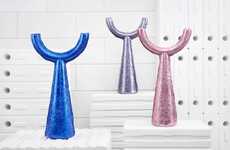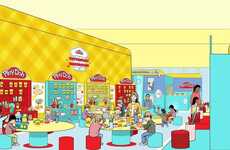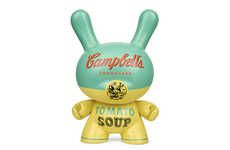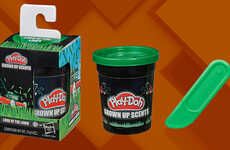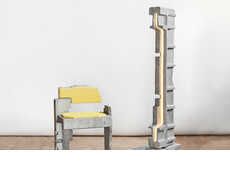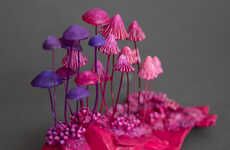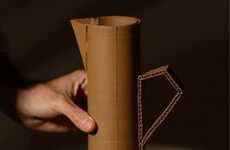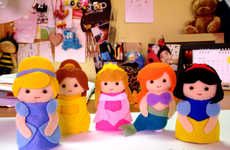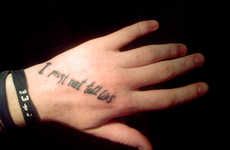
Miriam Jonas Creates Play Dough Sculptures Within Tin Cans
Gil Cohen — March 11, 2013 — Art & Design
References: miriamjonas.de & junk-culture
Comparing the modernist consumer culture with religious figureheads, Berlin artist Miriam Jonas creates colorful play dough sculptures of popes within industrial fish tin cans.
This unusual containment of play dough pokes fun at the prepackaged concepts and ideas that religion tends to provide in its attempt to try and please the masses. The popes are fictional characters, yet they are easily identifiable as caricatures of these extremely holy people. Fish tin cans, often a symbol of trash, are used in this project as a humorous reference to the religious symbol of the fish associated with Jesus Christ.
Those who have an understanding of the issues of religion as a product that is packaged in order to be consumed by the public, will find the humor in this series of play dough sculptures.
This unusual containment of play dough pokes fun at the prepackaged concepts and ideas that religion tends to provide in its attempt to try and please the masses. The popes are fictional characters, yet they are easily identifiable as caricatures of these extremely holy people. Fish tin cans, often a symbol of trash, are used in this project as a humorous reference to the religious symbol of the fish associated with Jesus Christ.
Those who have an understanding of the issues of religion as a product that is packaged in order to be consumed by the public, will find the humor in this series of play dough sculptures.
Trend Themes
1. Critiquing-religion-consumerism - Carving play dough popes within tin cans critiques the prepackaged concepts of religion and consumerism.
2. Humorous-religious-sculptures - Creating colorful play dough sculptures of popes in fish tin cans provides a humorous take on religious figureheads.
3. Art-as-satire - Using play dough as a medium, this art project satirizes the issues of religion as a product for public consumption.
Industry Implications
1. Art - Artists can explore the use of unconventional materials and satire to challenge societal norms and beliefs.
2. Religion - Religious institutions can examine the effects of consumerism and packaging on people's perception of faith and spirituality.
3. Consumer Culture - This project highlights the influence of consumer culture on religion, prompting discussions about authenticity and the commodification of faith.
2.4
Score
Popularity
Activity
Freshness


